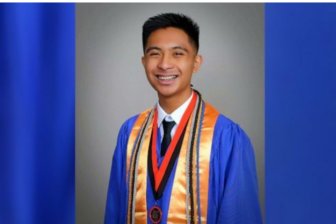Lack of ‘national security culture’ in Ottawa to blame for missed intel: ex-officials – National | Globalnews.ca
Canada’s politicians need to be more proactive to responding to foreign interference by establishing a “national security culture” within the government to recognize threats when they emerge, former intelligence and security officials say.
While they believe institutions like the Canadian Security Intelligence Service (CSIS) are equipped to respond to national security issues — though underfunded — very few people outside those agencies are experienced with the issue.
“Our politicians are really not very experienced in dealing with national security issues and frankly, would often prefer not to deal with them,” former CSIS director Ward Elcock told Mercedes Stephenson during a panel discussion that aired Sunday on The West Block.
“So it’s really not a surprise when things fall between the stones … when people actually aren’t experienced enough to know what the problem is.”

The question of how national security issues are handled in Ottawa has been under renewed scrutiny after the Globe and Mail reported two weeks ago that a 2021 CSIS assessment suggested the Chinese government was targeting a number of Canadian MPs, including Conservative MP Michael Chong and his family in Hong Kong.
While Prime Minister Justin Trudeau initially suggested CSIS did not circulate that intelligence to senior officials, the Privy Council Office (PCO) later confirmed that the information was circulated to that department and other national security agencies.
The PCO told Global News on Friday that while the information was sent to the office of Trudeau’s national security and intelligence adviser in 2021, that office did not flag the report to either the Prime Minister’s Office or other government departments.
“Right now, I think part of the problem we’re having with foreign interference is that you’re getting all this intel, but it’s going up the chain in a very disparate way,” said Vincent Rigby, a former national security advisor who served Trudeau in 2021.
“Some is going to the (prime minister), some is going to this minister, some is going to that minister.”

Rigby — who told Global News last week he didn’t recall receiving the report detailing China’s threats against Chong and other MPs — said having a national security cabinet committee in place would allow government ministers to discuss intelligence as it emerges and “what to do about broader national security strategy.”
“(The current system) is way too responsive, and that’s why I think we need a body like that.”
Trudeau has since directed CSIS to inform the government about any threats made against officials or their families, regardless of whether they are considered actionable.
The House of Commons, meanwhile, voted unanimously last week to have a committee probe the alleged targeting of Chong and his family by China’s Ministry of State Security and a Chinese diplomat in Toronto, Zhao Wei, who was expelled by Canada on Monday.
China retaliated by expelling a Canadian diplomat from Shanghai, and businesses in Canada are bracing for potential economic retaliations as well.
Elcock said he wasn’t particularly surprised that China was targeting Chong and other MPs, but he did note that Beijing’s foreign interference attempts around the world have “gotten worse.” Rigby also pointed out that while China is “the number one hostile state actor right now” domestically, other actors like Russia, Iran and North Korea continue to pose a threat.

For Rigby, a major issue with Canada’s national security strategy is that the government’s official policy hasn’t been updated since 2004 — a very different time when Islamic terrorism, not foreign interference or meddling, was the dominant issue of the day.
“I’m not saying that a new policy would solve all the problems, but I think it would focus the government’s attention,” he said.
“It’s been 20 years, and in terms of informing Canadians and having a public debate, maybe that’s the way to do it and have a review and have an informed discussion.”
Elcock disagreed, however, saying an overreliance on reviews is preventing intelligence agencies from doing what is necessary to counter emerging threats.
“I think it’s leading to a kind of unwillingness to actually do things that are part of being a competent intelligence organization,” he said — including operations that might make politicians and courts uncomfortable.
“Once you start to become unsure of your ability, your willingness to do stuff, you don’t necessarily do all the heavy lifting you need to do.”

A number of reviews into how Canada can better combat foreign interference are currently being led by House of Commons committees and the National Security and Intelligence Committee of Parliamentarians (NSICOP).
Trudeau’s special rapporteur David Johnston is due to report by May 23 with any “interim recommendations on the advisability of additional mechanisms or transparent processes” to help weed out foreign interference in Canada.
He will release a full report by October.
In the short term, both Elcock and Rigby said there will be an effort to hold someone accountable for failing to run the intelligence on Chong up the chain to the prime minister. But Rigby cautioned against the urge to further politicize the issue.
“In my view, when something like this happens, it’s a collective failure,” he said.
— with files from Global’s Alex Boutilier and Mackenzie Gray
© 2023 Global News, a division of Corus Entertainment Inc.
For more latest Politics News Click Here




